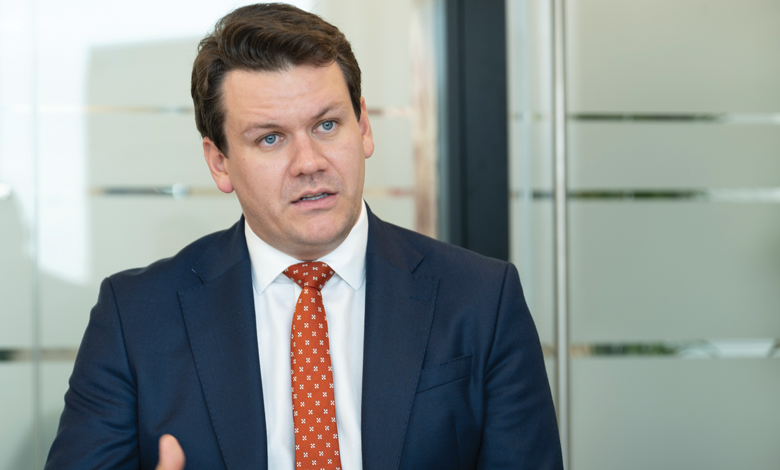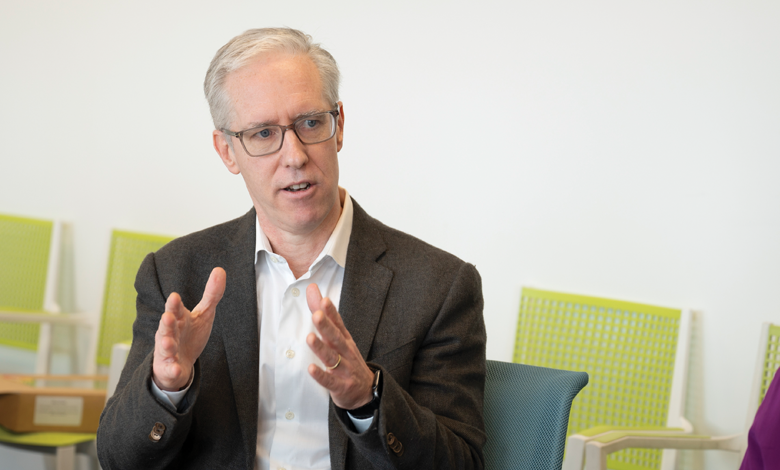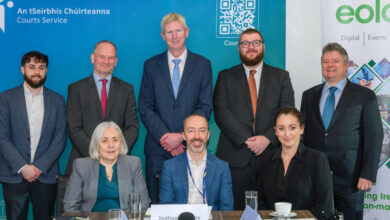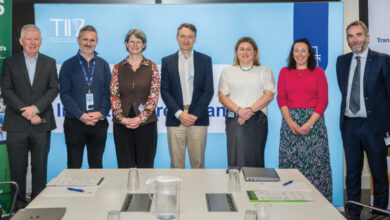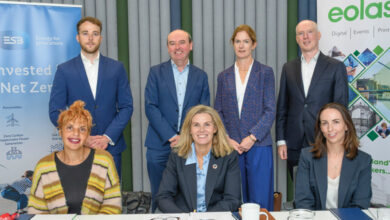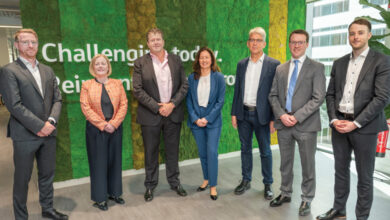Digitalising the decarbonisation of Ireland’s energy system
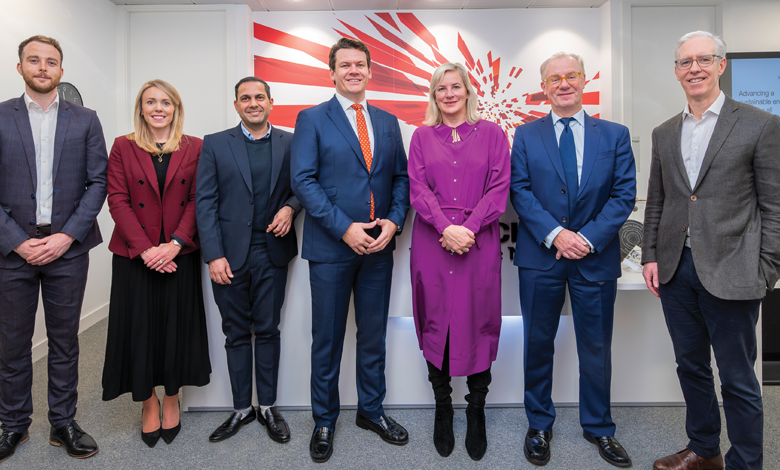
Hitachi Energy hosted a round table discussion with key stakeholders from across the energy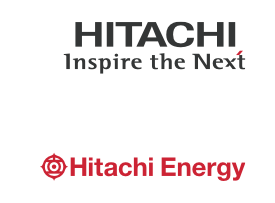 sector to examine how the twin transitions of digitalisation and decarbonisation can transform Ireland’s energy system.
sector to examine how the twin transitions of digitalisation and decarbonisation can transform Ireland’s energy system.
How can enhanced digitalisation accelerate the energy transition in Ireland?
Carmel Owens
One of the biggest challenges is

increasing grid capacity in the face of environmental and financial challenges. The International Energy Agency projects that by 2050, the total size of Ireland’s grid will need to double to meet the net zero ambition. Digitalisation can support this. Around the world, countries are exploring the concept of software-defined grids to increase capacity. GlobalLogic understands software-defined networks and as such believes that software-defined grids are a key component in the digital transformation of the energy system.
Rohan Kapoor
From generation to transmission, and distribution to consumption, enhanced digitalisation has a pivotal role to play. Decarbonisation means having distributed renewable energy sources connected to the system alongside data driven decision-making and smart grid management. Digitalisation will enable us to rapidly progress transformation and ensure that we maximise the use of all the resources at our disposal.
Simon Ludlam
The energy industry is ripe for digital disruption. Take for instance the transport industry where ride-hailing services have been totally transformative, unlocking better use of existing assets, reducing prices, and decarbonising journeys. We have a similar potential within the energy industry.
Niamh McGovern
The twin objectives of digitalisation and decarbonisation are at the forefront of economic growth. Consider very large energy users such as data centres and how critical that they are to digitalisation in terms of how and where we store data. Simultaneously, these extra-large energy users can contribute to decarbonisation – as well as being significant energy consumers – by entering into renewable power purchase agreements, developing on-site renewable energy solutions and otherwise. As such, it is important to recognise the impact that the digital economy is having on our energy sector. Leadership is coming from an EU level, including via the October 2022 action plan on digitalising the energy system, which outlined how this may be implemented over the coming years. I expect we will see more activity in this space at EU level.
Colm O’Neill
Digitalisation and decarbonisation are the leading drivers of change in the 21st century. As a result, digitalisation will impact every aspect of the energy system, from generators, grids, and transmission to distribution, retailers, and markets. Generators are already implementing – and will continue to implement – digital technologies to plan and deploy their assets and using them to establish enhanced visibility of their operations. In transmission and grids, there is an exciting potential to take grids that have limitations and make them much more effective and flexible for consumers. With improved insight, consumers themselves can play a more effective role in decarbonisation. Furthermore, markets will be created around the trading and consumption of energy which, over time, could match the scale of existing financial markets or certainly begin to mimic them. This will unlock an exciting potential for investment and innovation.
Ruairi Williamson
Driving digital transformation requires strong leadership from government, utilities, and regulators. Given the speed at which generative AI has gone mainstream, the need to hasten this transformation is even greater. In the absence of digitalisation, there will be no decarbonisation, and the reality of that twin transition is something that all industry leaders must acknowledge and respond to.
To what extent does successful grid transformation hinge on digitalisation?
Ruairi Williamson
In many respects, the grid is a relatively simple principle of physics, balancing supply and demand. The real challenge is posed by the variability of renewables, the increased integration of renewables onto the supply side, and balancing this with a relatively steady demand side. That is why the grid must transform. Smart technology has an important role to play in ensuring equilibrium and security of supply.
Carmel Owens
From an engineering software perspective, new and digitalised characteristics will herald a whole new generation of grid control systems, enhancing the efficiency of management. The volume of data could be 1,000 times greater than classic solutions, in turn necessitating a new generation of communications systems and analytics.
“Driving digital transformation requires strong leadership from government, utilities, and regulators.
Ruairi Williamson
Colm O’Neill
The grid is caught in a vice between the demand to build more infrastructure and the market rules that it operates within. In the middle of this vice, there is a space inhabited by digital technologies and enhanced access to information. The grid can be more efficiently deployed by improving the flow of information from where it is created to where it needs to be. There is huge potential to achieve enhanced services on the grid using digital technologies. These technologies exist today. Now they must be deployed within the grid infrastructure while creating the markets to allow people to invest in them.
Rohan Kapoor
While, as Ruairi mentioned the concept of grid management is relatively simple today, however, we are moving towards complicated and complex energy systems. What we have today is a very mature ecosystem, from a single source of generation to transmission, distribution, and consumption. Introduce multiple sources of generation and it all suddenly becomes very complicated and dynamic. Use of technology would allow for efficient balancing of variable energy sources, support demand side management, where consumers can adjust energy needs based on real-time information. Ultimately, digitalisation is essential for managing modern renewable powered grids and ensuring their resilience and reliability.
Simon Ludlam
Ireland leads the way in managing non-synchronous power on the grid with close to 90 per cent. While we should celebrate that success, we all know that when going from 90 to 100, the last 10 per cent is always the most difficult. The final 10 per cent will not be delivered unless we utilise more sophisticated digital solutions. For instance, AI will play a role in enabling efficient dispatch of competing generation sources including interconnection. Given the distributed nature of these components, a sophisticated system will be required, ultimately, to the benefit of consumers. However, we must pursue this in a manner that avoids placing significant costs on them. Digitalisation has a key role in that final stage.
Niamh McGovern
Digitalisation is inherently linked to the grid and mission critical in terms of enabling the increasing penetration of renewable energy onto the grid. One area worth mentioning is smart metering and enabling consumers to make informed decisions, thereby reducing demand on the grid at times of peak demand. We need decisions from regulators to facilitate that and we need enhanced cohesion between stakeholders. While this does not necessarily relate to the grid itself, and appreciating the broader engineering solutions, we must equally apply digitalisation to energy demand.
“We may be at an inflection point where we consider how we consume electricity.
Colm O’Neill
What specific technologies have the greatest potential to consolidate Ireland’s energy transition?
Rohan Kapoor
All of the available technologies have a role. There must be a mix of any technologies which are green, clean, and sustainable. Take for instance the context of Northern Ireland, where there is a target of at least 80 per cent of electricity consumption from renewable sources by 2030. That is not going to be easy. Consequently, wind, solar, and renewable gases will play a massive role.
Colm O’Neill
Storage is a very interesting topic at the moment. KPMG Ireland recently hosted a group of its M&A partners from across Europe to discuss energy consumer trends. In some parts of Europe, we have observed a significant increase in battery storage facilities because they are relatively easy to build, and they are not as vulnerable to planning and permitting challenges. However, battery storage in isolation is not regarded as a desirable proposition. Rather, it is preferable to establish a hybrid environment in which renewable energy generation and storage collocated. While storage has a role to play in the energy system, the single biggest leap forward in the last 12 to 18 months – certainly in Ireland – is a move beyond dogma in terms of how we approach the energy transition. Previously, there was a passionate commitment to particular technologies and specific ways of achieving the energy transition. Now, we must press ahead with a multi-technology approach. However, it should be said that depending on technical developments and advances in research and development, certain technologies will ultimately prevail.
Niamh McGovern
Alongside the other technologies mentioned, there is a policy intent to press ahead with offshore wind. Indeed, in October 2024, CRU published the Phase 2 offshore wind grid connection pathway decision paper. Aligned with our offshore ambitions, we must consider our investment in long duration storage and interconnection. Long duration energy storage technologies – including pumped hydro, compressed air, and battery storage technologies – will play a significant role, particularly in the context of our ambitions for surplus energy from offshore wind generation. LDES has significant potential to balance the grid and merits investment alongside technologies like offshore wind.
“The International Energy Agency projects that by 2050, the total size of Ireland’s grid will need to double to meet the net zero ambition.
Carmel Owens
Carmel Owens
If Ireland is to meet its target of one million electric vehicles on the road by 2030, there is a significant opportunity for us to create infrastructure to support the grid. At the same time, there is a need to establish regulatory support for market participation.
Simon Ludlam
Located on one of the western extremities of Europe, Ireland is in a unique geographic position with access to a rich source of wind. When depressions arrive off the Atlantic Ocean, they first reach the west coasts of Ireland and France. The question is how to best maximise this opportunity and whether certain technologies will be required to harness this wind resource effectively. At the same time, I agree that we need to develop long duration storage and increased interconnection capacity to manage dunkelflautes or curtailment from excess wind. Ultimately, Ireland must decide whether it wants to match the generation of energy it produces with local demand, or whether it takes steps to export it. Of course we can grow our domestic industries, but we can also monetise generation surplus through export and reinvest that into the economy. This strategic decision will influence the scale and type of technologies developed including interconnection, which will send positive investment signals to wind developers in Ireland.
Colm O’Neill
We must talk about nuclear energy. There have been several recent developments, including Microsoft’s 20-year deal with the Three Mile Island nuclear energy plant, Google’s agreement with Kairos Power to order between six and seven small modular nuclear reactors (SMRs), and Amazon’s announcement that it has signed three new agreements to enable the construction of several new SMRs. At the same time, the US Department of Energy has published Pathways to Commercial Liftoff: Advanced Nuclear, its launchpad for the commercialisation of nuclear energy. The Inflation Reduction Act is also driving an enhanced role for the generation of electricity from nuclear power plants via new incentives, making it increasingly attractive to investment. Obviously, Ireland is in a different context, and we do not have an existing nuclear industry. In fact, it is difficult to determine how the State could justify establishing the enabling architecture, such as a regulatory environment, to create a large nuclear facility here in Ireland. It will not happen in my lifetime; however, we must keenly observe developments in SMR technology and consider whether, at some stage, it might play a role in our energy system.
Niamh McGovern
I agree. Given the mainstreaming of AI, our energy consumption is growing exponentially, to the extent that we do not know what the energy landscape will look like in a decade. Currently, there is a statutory ban on nuclear energy in Ireland and generating electricity via nuclear fission is prohibited under the Electricity Regulation Act. Politically and culturally, it is difficult to envision the construction of a nuclear power plant in Ireland. However, given our economic model, it is incumbent on us to keep an eye on international developments in this space.
Ruairi Williamson
One development that Colm referenced earlier is the establishment of new and flexible markets. We are not sure what they look like or how they will be formed, but they will drive behavioural change. Consumers will be more conscious of peak demand when making a decision to charge an EV or similar. Creating new markets in the distribution and flexibility space will help establish equilibrium with the demand side. This will accelerate the energy transition.
What are the major obstacles to the digital transformation of the Irish energy system?
Colm O’Neill
The main challenge is one of culture, as the energy industry is siloed. Engineers think in a disciplined way, breaking down a problem into its constituent parts, and this is reflected in the structure of the industry as a whole. This makes it difficult for people from different sectors to collaborate on a project of mutual interest. It is far from the only challenge, but adapting culture is the most significant barrier to securing the digital transformation of the energy system.
Rohan Kapoor
A significant challenge in the energy transition is the need for a cultural shift in how projects are approached. Currently, the mindset is focused on achieving strict milestones, but to keep pace with rapid technological advancements, the industry needs to adopt more agile methods. Technology now enables projects that once took three or four years to be completed in just a few months, but the working culture has not adapted as quickly. This outdated approach must be overhauled. Another critical challenge is the skills shortage within the industry. While we are pushing forward with technological advancements, it is equally important to address the need for skilled and experienced workers. The energy transition can only succeed if we have the right workforce in place to implement and manage these innovations.
“Digitalisation is essential for managing modern renewable powered grids. Rohan Kapoor
Ruairi Williamson
In practical terms, we have a very old energy system, and we must work with the asset base that exists, using it optimally, notwithstanding that the major obstacle is cybersecurity and building confidence in our digital networks. The confidence in the industry is growing, but there is still an anxiety around cybersecurity. As such, we must ensure that digital technologies are applied in a safe and secure manner.
Niamh McGovern
From an investment perspective, there has been rapid change in the energy sector. In my line of work, I have observed several stakeholders weigh up the costs and benefits of investing in AI solutions and digital infrastructure within the energy sector. In their risk analyses, and a common theme has been that new technology becomes outdated very quickly with the pace of change. This a challenge but also represents a significant opportunity for the sector in terms of keeping up with emerging new technologies.
“Digitalisation is inherently linked to the grid and mission critical in terms of enabling the increasing penetration of renewable energy.
Niamh McGovern
Carmel Owens
Ensuring adequate skills capacity is a challenge. As an industry, we require talent beyond electrical engineers. We need data scientists for the operation of this new type of grid. The question is, where do we acquire those skills? There is no easy answer to this as these skills are not yet widely available, so this is a major challenge for policymakers.
Simon Ludlam
In most European countries, the energy industry tends to be led by a few dominant players, from energy providers and TSOs to utility regulators and the State. If we want to evolve the sector at pace, the question we must ask is whether we want to put all our resources into the existing framework, or whether we believe third parties can bring a fresh and complementary approach. The energy industry is strategic and too important not to have a large degree of standardisation. We must decide how to bring the change in a manner which maintains this standardisation but also accelerates change.
In approaching the dual transition of digitalisation and decarbonisation, what lessons can be applied from experiences elsewhere?
Ruairi Williamson
From Hitachi Energy’s experience elsewhere, what we have learned is that taking decisive action is the key to progress. In Germany, Norway, and Poland we have seen strong and brave decisions being taken by the TSOs, whereas in Ireland, progress has been slower amid much indecision. If we can get this right, there is a major economic opportunity to be realised.
Colm O’Neill
We may be at an inflection point where we consider how we consume electricity. Throughout history, human prosperity has been inextricably linked to the consumption of energy. When humanity discovered fire, it launched human evolution into a new trajectory which led to the creation of the steam engine and necessitated new fuels, such as coal, gas, and oil. AI presents a challenge to make the next leap in this evolution, as its ability to consume energy is eye-watering. For instance, a search query on Chat GPT consumes around 100-times more energy than one on a traditional search engine. We are at a stage where use of AI is only going to increase, but we do not yet have an electricity network which is capable of meeting the increased demand which will come about with this. We have to ask ourselves, are we agile enough and are we flexible enough?
Niamh McGovern
Equally significant is learning from other sectors; keeping an eye on developments in beyond the energy sector and how they respond to AI is going to be very important. We cannot remain siloed. Many of our European neighbours’ regulators and transmission system operators are making brave decisions. For example, in Germany, following a decision by the regulator, a transmission system operator agreed to underwrite grid delays for the development of offshore infrastructure off the German coast and compensate windfarm developers for grid delays. That sped up the infrastructure development and kickstarted Germany’s offshore sector. These types of decisions being made by other regulators and TSOs are ones that we in Ireland need to be cognisant of.
“The energy industry is ripe for digital disruption.
Simon Ludlam
Simon Ludlam
Europe must continue to show leadership in innovation. We are working with a small company around the minting of carbon offset certificates. This involves using blockchain technology, a smart miner, and a solar panel. For every kilowatt of energy produced, the blockchain expands, providing the solar panel owner with a 10 cents reward, while carbon offset certificates – tradeable in the market – are minted.
Why are we involved in this? We believe that these really cutting-edge technologies could be scaled and applied to large scale generators, such as nuclear power stations in Europe, from which we could trace every electron. Currently, interconnectors are importing and exporting, but we do not fully know the colour of the transiting electrons, and that is something we aim to change. By exploring technologies from both within and beyond the energy sector, we aim to strengthen Europe’s position as a hub for innovation.
Carmel Owens
I think that with the adoption of things like open systems and open standards-type environments, some very interesting technology solutions will emerge which can then be adapted and applied to the energy industry. This is what we are seeing in the telecoms sector with the adoption of open radio access networks, and this is driving transformation.
Rohan Kapoor
NIE Networks is witnessing significant advancements in the energy ecosystem, and looking to scale these efforts, we can draw inspiration from global exemplars. California, for instance, has successfully implemented large-scale energy reforms, backed by strong regulation. The EU is also leading the way in electrifying infrastructure. Australia offers another perspective, with blockchain technology already integrated into its energy markets. Ireland is uniquely positioned to benefit from these global examples. By learning from the successes and challenges faced by others, we can leverage a later-mover advantage, avoiding past mistakes and capitalising on proven strategies for a more efficient energy transition.

